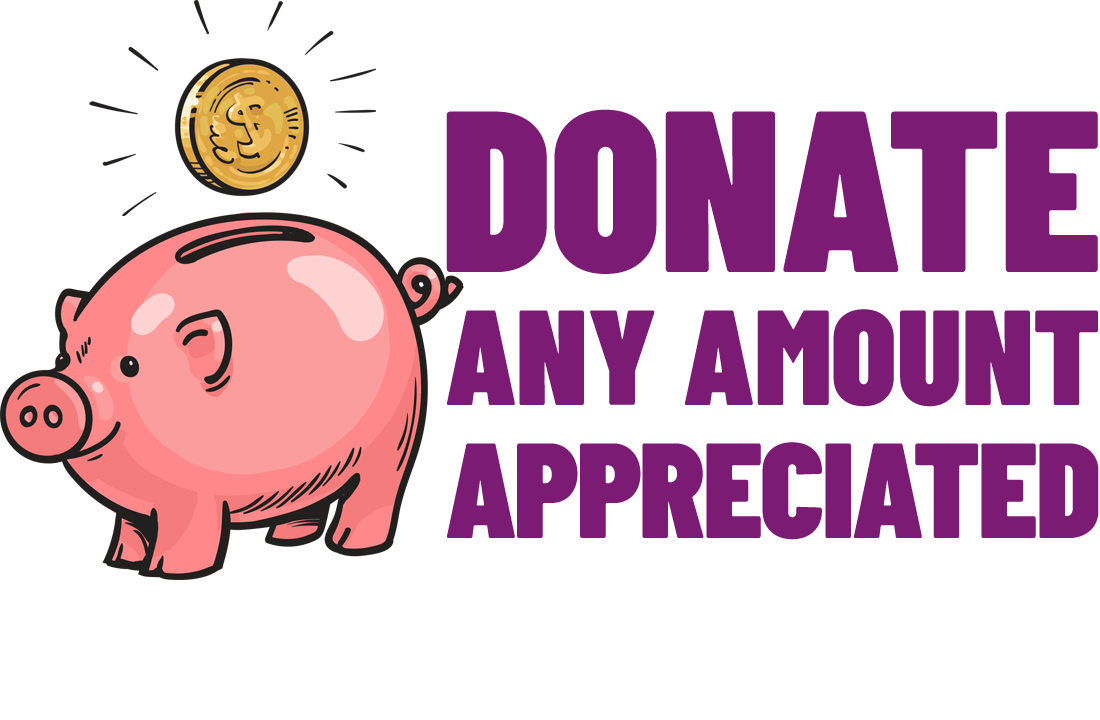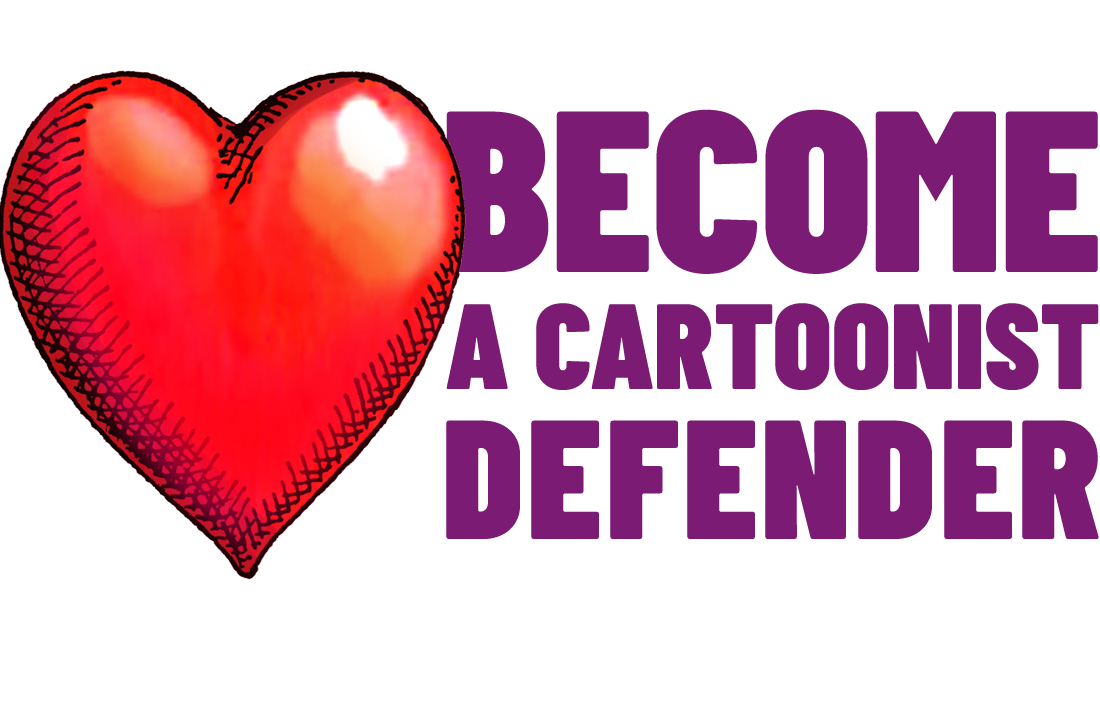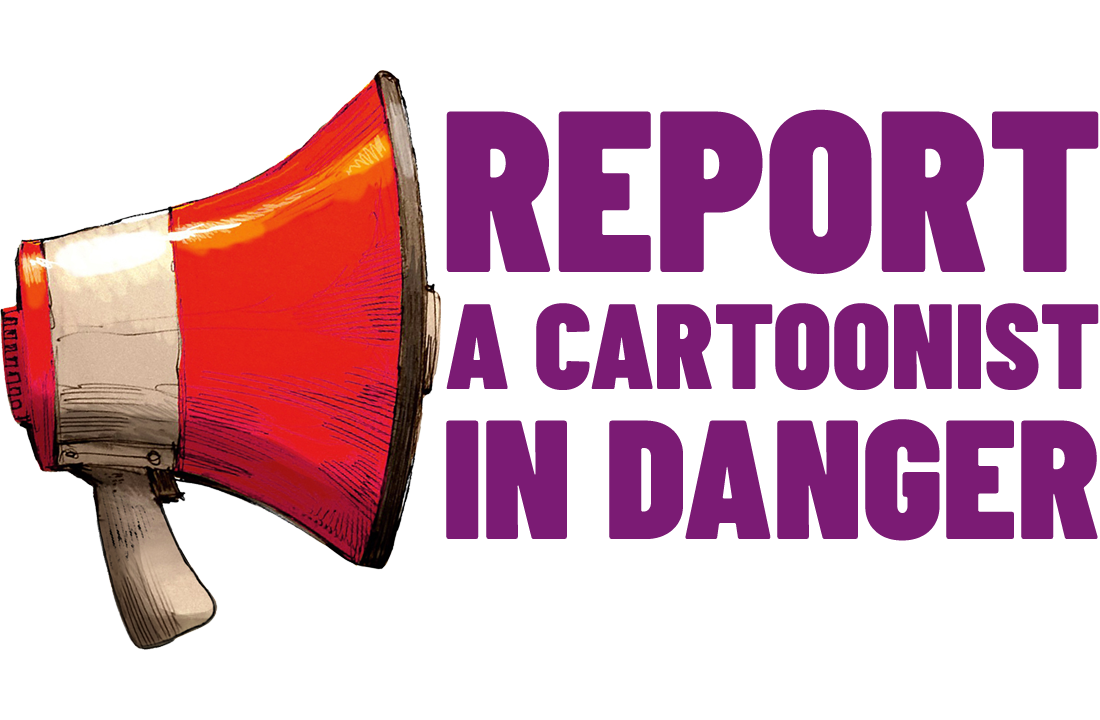Cartoonist Zehra Ömeroğlu placed at risk of imminent imprisonment over pandemic cartoon in LeMan magazine
Under the auspices of Türkiye’s Ministry of Family, Labour and Social Services, the Directorate of Child Services convenes a Board for the Protection of Minors from Obscene Publications. On March 8th, 2024, the board returned a report to the Istanbul 2nd Criminal Court of First Instance, having at the judge’s request reviewed a cartoon by Zehra Ömeroğlu that appeared in the pages of LeMan humour magazine on November 25th, 2020.
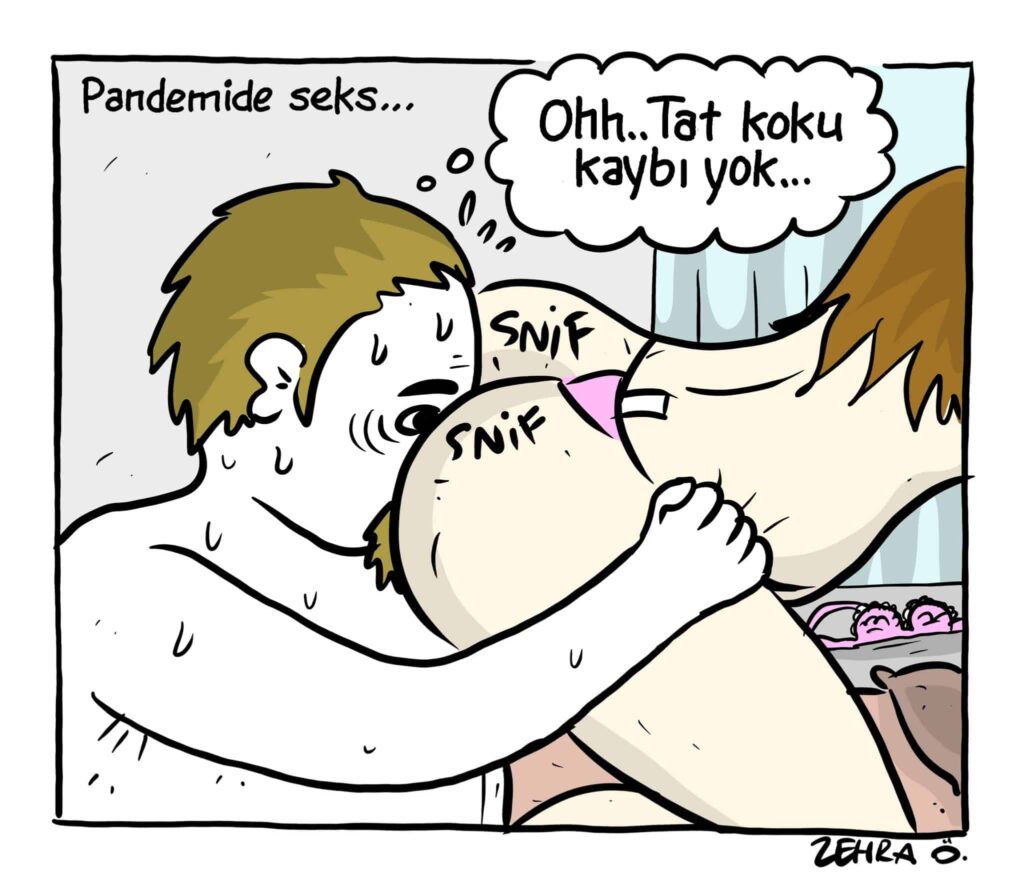
Ömeroğlu’s cartoon, which appeared in LeMan amid public health measures against COVID-19. The caption reads:
Sex and the pandemic…
“At least I didn’t lose my taste and smell…”
The board have determined that the cartoon violates the relevant law (Article 226 of the Turkish Penal Code No. 5237), finding: “[the cartoon’s] main purpose […] completely contrary to the customs, traditions and moral understanding of our society and that offend[s] modesty, is to create sexual arousal in the viewer and thereby profit from this […]”; and concluding: “[the cartoon] offends the public’s feelings of chastity and modesty, and it has been unanimously deemed that it is against general morality and obscene, as it provokes and exploits desires.”
An unfair conclusion
We take great exception to the way in which Ömeroğlu’s work is characterised, with a definition that is indistinguishable from that of pornography. In context (the long-established and very well-known LeMan, which is categorically not a children’s title) it is incredible to suggest that the cartoon’s “main purpose” was anything other than to amuse the reader.
Furthermore, while it is true that the cartoon portrays a couple engaged in a sexual act, as a matter of fact it does not portray nudity, only a state of undress, and there are no genitals or sex organs rendered. The art style lacks detail or realism. “Arousal” was very clearly not the intent of the author, a cartoonist whose work focuses largely on sex and female sexuality in a humorous and light-hearted manner.
“Either my eyesight has deteriorated or the board members can detect the invisible with their special powers […] I cannot see the person they call ‘completely naked’ twice in one sentence on the cartoon they are examining.”
– Barış Pehlivan writes in Cumhuriyet, 13/03/24
Cartoonists in Türkiye on notice
We understand that the stated aim of the board is to protect children from “the harmful effects” of “an open attack on the common decency and moral cleanliness of society” but also note their explanation that “In determining the violation of general morality and good manners, which is an abstract and variable concept, the rules of conduct related to the democratic social order should be taken as a basis, not the value judgments accepted in a certain segment of the society.”
They also concede that the cartoon portrays no “unnatural” behaviour. Nevertheless, if this single cartoon qualifies as such an “open attack”, and one so egregious that it runs counter to the “democratic social order” of the entire nation, the board is setting an alarming precedent with ramifications for every working cartoonist in Türkiye.
Unspoken sexism?
Not for the first time we are forced to ask whether there is an unarticulated aspect to this prosecution? Would the same cartoon, published under the same circumstances, have attracted the same judicial action and censorious ruling had it been authored by a man instead of a woman?
Rather than a stern warning about the prospect of children being endangered by exposure to allegedly obscene material, isn’t the message being sent one aimed squarely at Türkiye’s women, and that says, “don’t make raunchy jokes, or we’ll send you to prison?”
Although officially non-binding, there is no reason to expect that the court will ignore the findings of the board. In essence it determines Ömeroğlu’s guilt ahead of her trial, expected April 16th, 2024.
This would mark the end of a protracted legal process, delayed four times over – first by the pandemic, and then by the apparent inability of the board to come to a swift determination about the cartoon – and that will almost certainly see her criminalised and at risk of a custodial sentence between six months and three years, plus a fine.
If a suspended sentence is handed down it will curtail the cartoonist’s freedom of expression going forward, as any future criminal charges will automatically carry with them more severe sentencing options.
The Zehra Ömeroğlu case previously featured in our report, Cartoonists on the Line, released last year and co-authored with Cartooning for Peace.
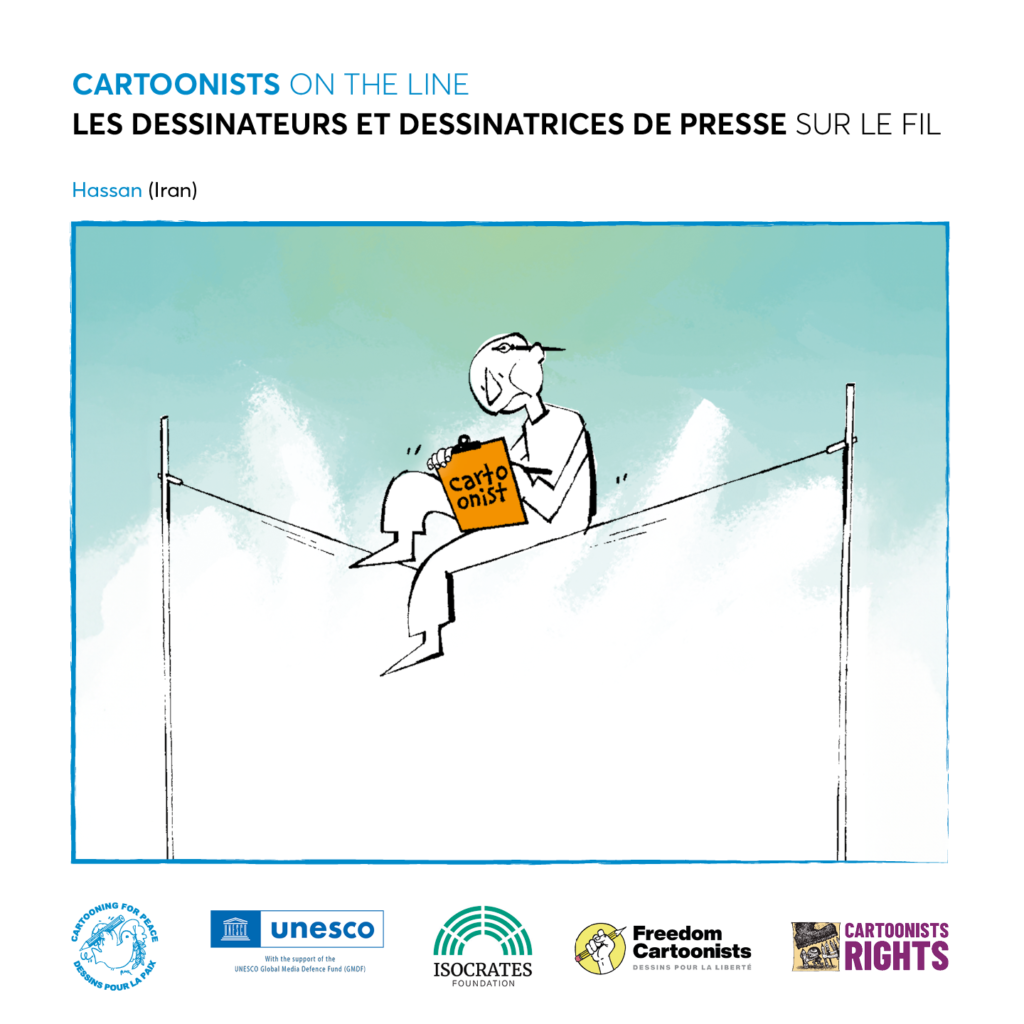
Let Zehra Ömeroğlu draw what she wishes
We object in the strongest terms to the recent findings of the Board for the Protection of Minors from Obscene Publications, and the premise of the Public Prosecutor’s Office’s long-running case against Zehra Ömeroğlu. Her reputation is being unfairly trammelled, her career jeopardised, and her safety put a risk within a process that we believe is motivated by prejudice and misogyny more so than any duty to the Turkish public.
We call for the withdrawal of this report, and the end of the court proceedings against her. Zehra Ömeroğlu is innocent and must be recognised as such.


